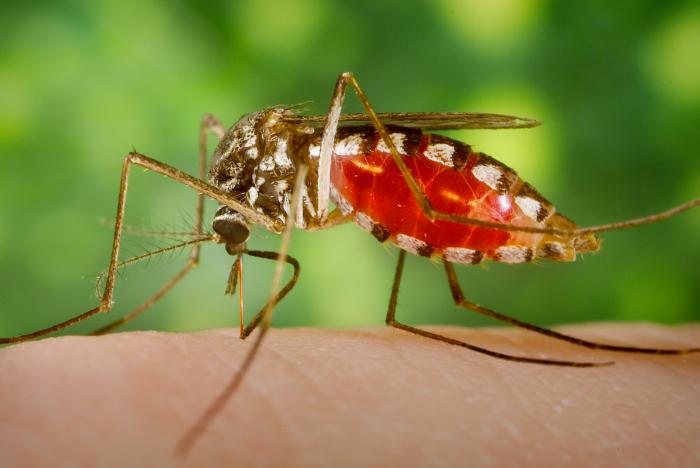(单词翻译:单击)
听力文本
This is Scientific American — 60-Second Science. I'm Christopher Intagliata.
As you've probably experienced firsthand, some mosquito species have a real taste for warm, human blood. So much so that if you raise them on in the lab, they'll accept no substitute.
"Fortunately, I don't get major reactions at all." Brad Main is a mosquito geneticist at U.C. Davis... and part-time mosquito meal provider. "So it's not too bad for me. But some people in the lab are itching pretty bad when they have hundreds of mosquito bites on their arms."

Out in the wild, some species are less picky. Take Anopheles arabiensis, common in East Africa. They'll feed on cattle, dogs, goats, pigs, people—wherever they can find a warm meal. But what Main and his colleagues wanted to know was whether the bloodsuckers' choice of victim might be genetically determined. So they sequenced the genomes of 48 arabiensis mosquitoes from Tanzania which had fed on either humans or cows.
And they found that bugs with cow blood in their bellies had one partially rearranged chromosome, compared to those who'd snacked on human blood... which could explain the preferences in meal choices. The study is in the journal PLoS Genetics.
If that genetic switch really does make cows more attractive than we are to mosquitoes, in theory we could genetically engineer them to steer clear of people. And their cow victims don't get human malaria. "It's a case of knowing your enemy. And so the better we know these mosquitoes, I think the more equipped we're going to be able to control them."
Thanks for listening for Scientific American — 60-Second Science Science. I'm Christopher Intagliata.
参考译文
这里是科学美国人——60秒科学。我是克里斯托弗·因塔利亚塔。
正如大家可能亲身经历过的那样,一些蚊子喜欢温暖的人类血液。以至于如果你把它们养在实验室里,它们会拒绝替代品。
“幸运的是,我完全没有感到明显的反应。” 布拉德·曼恩是加州大学戴维斯分校的蚊子遗传学家和兼职蚊子食物供应商。“所以它对我来说不是太坏。但当实验室里有数百只蚊子在叮咬他们的胳膊时,一些人会感觉非常痒。”
在野外,一些物种没那么挑剔。以东非常见的阿拉伯按蚊为例。它们以牛、狗、山羊、猪以及人类的血为食,它们在任何地方都能找到温暖的一餐。但曼恩和他的同事们想知道的是,这些吸血动物选择的受害者是否是由基因决定的。所以他们在坦桑尼亚收集了48只以人或牛血液为食的阿拉伯按蚊,并对它们进行了基因组排序检测。
他们发现,与吸食人类血液的蚊子相比,那些吸食牛血的蚊子的腹部有一部分细菌染色体重排,这可以解释膳食的选择偏好。这一研究结果发表在《公共科学图书馆遗传学》期刊上。
如果说这种基因转变真能使牛比我们对蚊子更具吸引力,那在理论上我们可以通过基因工程来使蚊子远离人类。而牛也不会感染人疟。“这是一个了解敌人的例子。我们越是了解这些蚊子,我们就越能更好地控制它们。”
谢谢大家收听科学美国人——60秒科学。我是克里斯托弗·因塔利亚塔。
译文为可可英语翻译,未经授权请勿转载!
重点讲解
重点讲解:
1. have a taste for 喜欢;偏好;
例句:She has a taste for classic music.
她喜欢古典音乐。
2. compared to 与…相比;和…比起来;
例句:Compared to the noisy cities, he preferred the quiet country life.
比起喧闹的大城市,他更喜欢宁静的乡村生活。
3. in theory 从理论上说;照理说;
例句:Your plan sounds fine in theory, but I don't know if it'll work in practice.
你的计划理论上不错,但我不知道实际上是否行得通。
4. steer clear of 避开;躲避;绕开;
例句:I think a lot of people, women in particular, steer clear of these sensitive issues.
我认为很多人,特别是女性,都会回避这些敏感问题。


